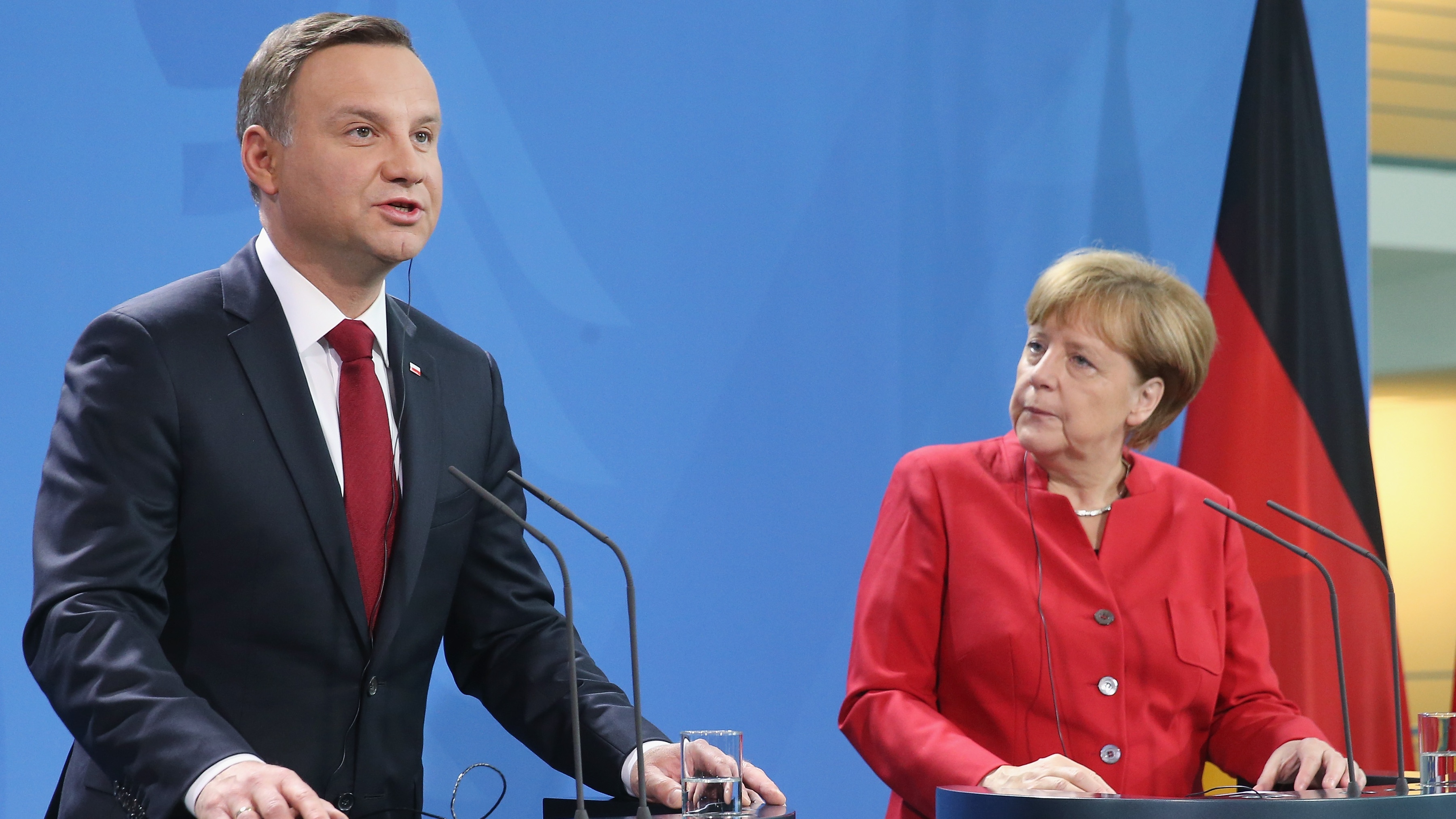Poland refuse to sign off German ambassador over father’s Nazi links
German officials suspect dispute is ‘politically motivated’ following fraught election campaign

A free daily email with the biggest news stories of the day – and the best features from TheWeek.com
You are now subscribed
Your newsletter sign-up was successful
The future of Germany’s new ambassador to Poland hangs in the balance amid a press storm over his father’s past as a senior officer under the Nazis.
Earlier in the summer, Arndt Freytag von Loringhoven, “a former Nato intelligence chief, well-regarded ambassador to Prague and capable jazz guitarist” was nominated to take up the post, The Times reports.
But Poland has delayed formalising the appointment, while right-wing press in the country have “lambasted” Freytag von Loringhoven over his father’s links to Adolf Hitler.
The Week
Escape your echo chamber. Get the facts behind the news, plus analysis from multiple perspectives.

Sign up for The Week's Free Newsletters
From our morning news briefing to a weekly Good News Newsletter, get the best of The Week delivered directly to your inbox.
From our morning news briefing to a weekly Good News Newsletter, get the best of The Week delivered directly to your inbox.
His father, Bernd Freytag von Loringhoven, was a Wehrmacht officer under the Nazis and prepared Hitler’s daily military briefings towards the end of the Second World War.
After being absolved of war crimes, he became a senior figure in the West German armed forces and later worked as an adviser on the film Downfall. He died in 2007.
Najwyszy Czas (High Time), a conservative Polish magazine, described the nomination as “Merkel’s gift to the Poles - son of Hitler’s aide de camp will be ambassador to Warsaw”.
But German officals suspect that the Polish response to Freytag von Loringhoven has little to do with his family history and may in fact be politically motivated.
A free daily email with the biggest news stories of the day – and the best features from TheWeek.com
President Andrzej Duda frequently deployed “anti-German rhetoric” during his “protracted campaign for the Polish election” this year, the Financial Times notes.
Duda, who has the support of the ruling Law and Justice party, attacked coverage of the election by German-owned media, singling out the Polish tabloid Fakt, which is owned by German-Swiss publishing house Ringier Axel Springer.
The two countries have also “recently sparred over other issues such as the Nord Stream 2 pipeline, which Berlin backs but Warsaw bitterly opposes”, the FT adds.
Both will want to resolve the dispute as quickly as possible, The Times suggests, as “there are also strong trade ties between the neighbours”. Germany is by far Poland’s largest export market, purchasing a greater amount of its goods than the next four countries combined.
Joe Evans is the world news editor at TheWeek.co.uk. He joined the team in 2019 and held roles including deputy news editor and acting news editor before moving into his current position in early 2021. He is a regular panellist on The Week Unwrapped podcast, discussing politics and foreign affairs.
Before joining The Week, he worked as a freelance journalist covering the UK and Ireland for German newspapers and magazines. A series of features on Brexit and the Irish border got him nominated for the Hostwriter Prize in 2019. Prior to settling down in London, he lived and worked in Cambodia, where he ran communications for a non-governmental organisation and worked as a journalist covering Southeast Asia. He has a master’s degree in journalism from City, University of London, and before that studied English Literature at the University of Manchester.
-
 Why are election experts taking Trump’s midterm threats seriously?
Why are election experts taking Trump’s midterm threats seriously?IN THE SPOTLIGHT As the president muses about polling place deployments and a centralized electoral system aimed at one-party control, lawmakers are taking this administration at its word
-
 ‘Restaurateurs have become millionaires’
‘Restaurateurs have become millionaires’Instant Opinion Opinion, comment and editorials of the day
-
 Earth is rapidly approaching a ‘hothouse’ trajectory of warming
Earth is rapidly approaching a ‘hothouse’ trajectory of warmingThe explainer It may become impossible to fix
-
 Epstein files topple law CEO, roil UK government
Epstein files topple law CEO, roil UK governmentSpeed Read Peter Mandelson, Britain’s former ambassador to the US, is caught up in the scandal
-
 Iran and US prepare to meet after skirmishes
Iran and US prepare to meet after skirmishesSpeed Read The incident comes amid heightened tensions in the Middle East
-
 Israel retrieves final hostage’s body from Gaza
Israel retrieves final hostage’s body from GazaSpeed Read The 24-year-old police officer was killed during the initial Hamas attack
-
 China’s Xi targets top general in growing purge
China’s Xi targets top general in growing purgeSpeed Read Zhang Youxia is being investigated over ‘grave violations’ of the law
-
 Panama and Canada are negotiating over a crucial copper mine
Panama and Canada are negotiating over a crucial copper mineIn the Spotlight Panama is set to make a final decision on the mine this summer
-
 Why Greenland’s natural resources are nearly impossible to mine
Why Greenland’s natural resources are nearly impossible to mineThe Explainer The country’s natural landscape makes the task extremely difficult
-
 Iran cuts internet as protests escalate
Iran cuts internet as protests escalateSpeed Reada Government buildings across the country have been set on fire
-
 US nabs ‘shadow’ tanker claimed by Russia
US nabs ‘shadow’ tanker claimed by RussiaSpeed Read The ship was one of two vessels seized by the US military